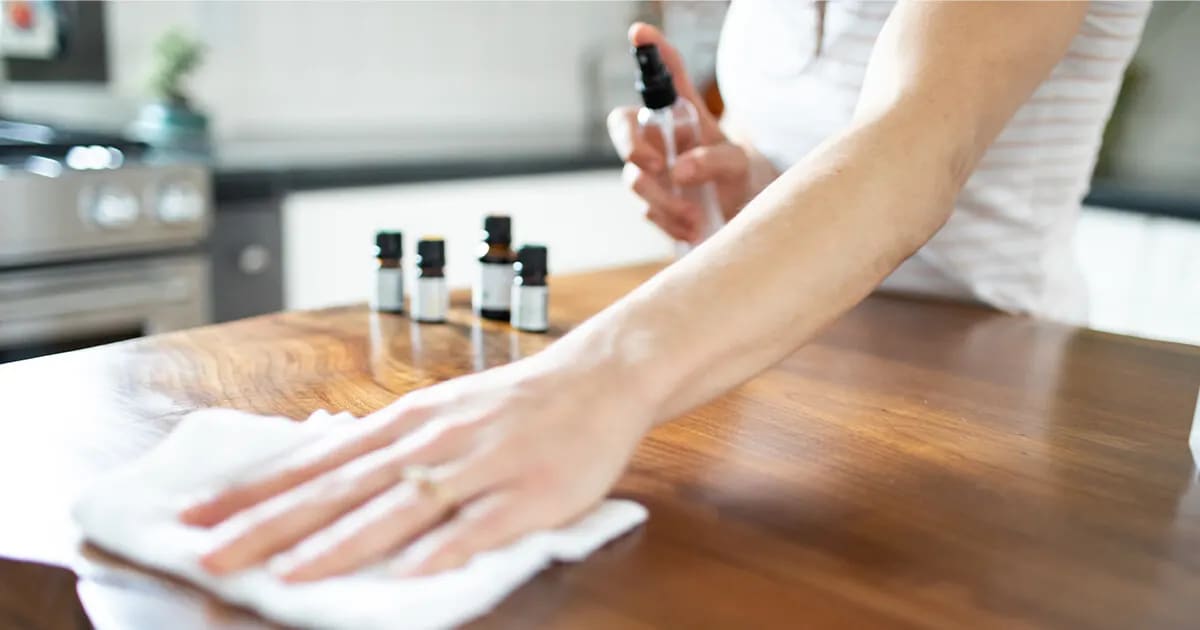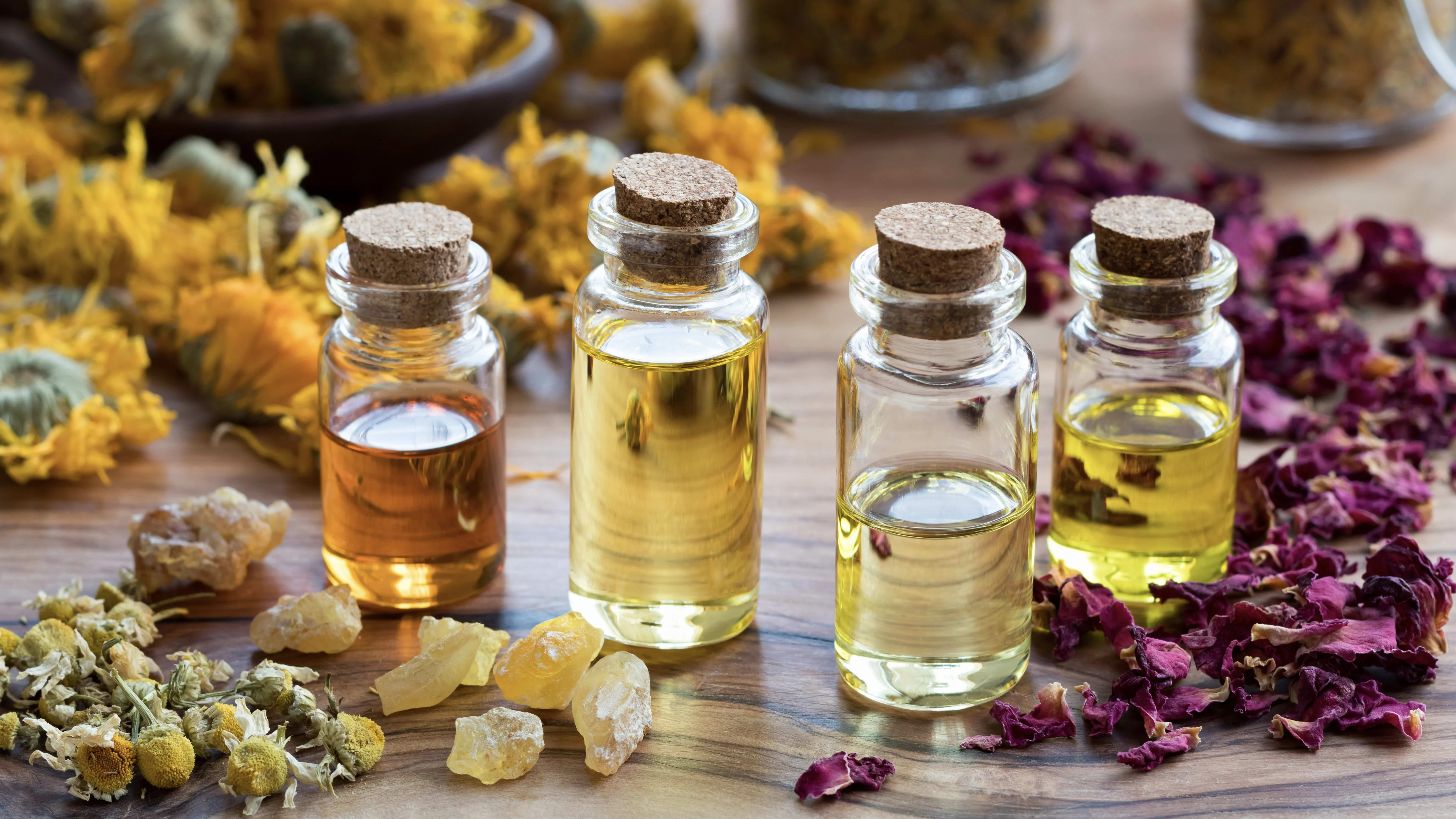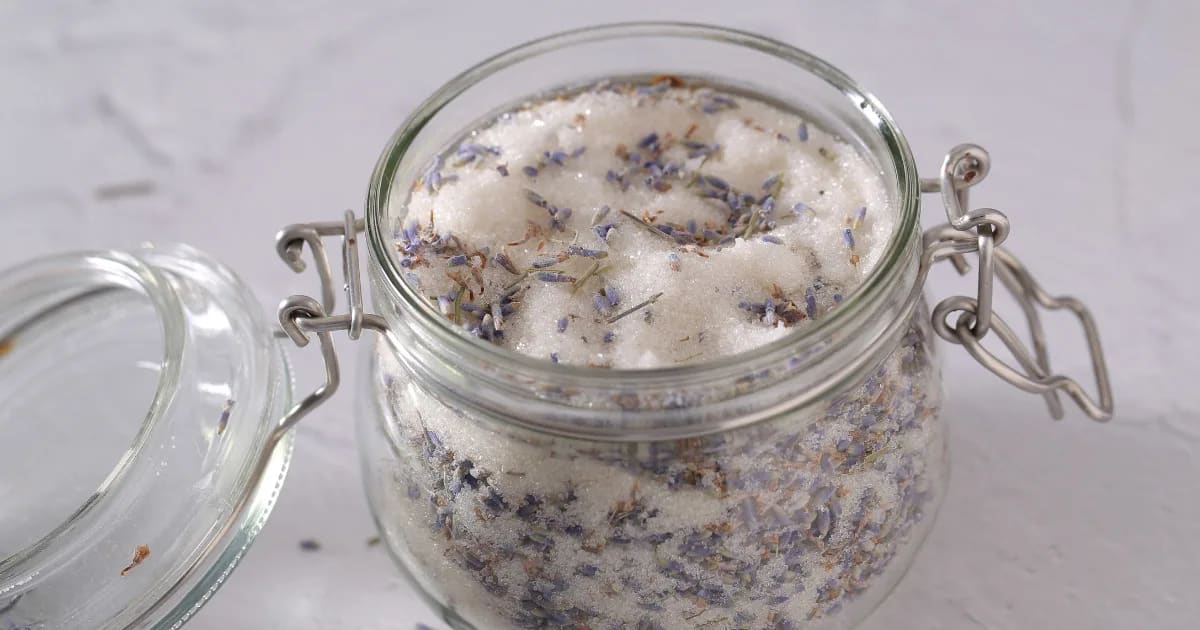8 Science-Based Ways Essential Oils Support the Immune System

Can you use essential oils for cold and flu?
The simple answer to this question is yes! You can absolutely use essential oils to support your immune system during cold and flu season. But the simple answer is just the beginning. Since you’re part of the Aromahead community, you’ll likely be curious about how and why they can help. That’s where things start to get interesting, because essential oils, like the human body and the immune system, are wonderfully complex.
Let’s talk about the immune system, factors that influence immune health, and why essential oils are such powerful natural tools for supporting it (especially during cold and flu season).
What is the immune system?
Johns Hopkins Medicine describes the immune system very simply:
The immune system protects [the] body from outside invaders, such as bacteria, viruses, fungi, and toxins . . . It is made up of different organs, cells, and proteins that work together.
There’s no single part of your body that’s fully responsible for activating your immune system and keeping it strong. Instead, multiple organs and glands are involved in producing protective cells that fight off invaders. Your whole body works together to keep you at peak health. Even your mind plays a role, since stress has such an effect on immune health.
Your immune system is a holistic, integrated response to threats.
There are a LOT of factors that influence your immune system! It’s affected by genetics and lifestyle factors like:
Diet
Exercise
Stress
Sleep
Supplements
Chronic inflammation
Allergens and reactions to them
Handwashing
Exposure to germs, like bacteria and viruses
Exposure to potentially toxic chemicals
While this list is just a start, it gives you an idea of the numerous factors that affect the integrity of your immune system.
8 ways essential oils can boost your immune system
Sometimes essential oils can support your immune system directly, such as by affecting your white blood cell count. Other times, they’re working to help your whole system stay calmer, stronger, less inflamed, and healthier overall.
Let’s take a look at 8 ways essential oils can support various aspects of your immune system.
Increase white blood cell count
Support phagocytes
Soothe stress
Support sleep
Calm inflammation
Provide antioxidant effects
Reduce exposure to harmful microbes
Reduce exposure to harmful chemicals
Increase white blood cell count
White blood cells play a key role in your body’s immune health. They’re like little soldiers, patrolling through your bloodstream and looking for invaders. If an invader (like bacteria) gets in, your white blood cells rush to the scene of the action and put up a fight!
If you’ve ever gone to the doctor for an infection and been told your white blood cell count was high, that means your immune system was working hard to protect you.
How essential oils can help:
Some essential oils contain natural components that boosted white blood cell count in animal trials. One of these components (d-limonene) shows up a lot in citrus essential oils . . . which is just one reason why we like to rely on our friends the citrus oils during cold and flu season!
Support phagocytes
Phagocytes are cells that work to identify invaders (bacteria, viruses, and other toxins), and basically “absorb” them so they can’t roam around your body doing whatever they like. We definitely want to support our phagocytes!
Patchouli essential oil (Pogostemon cablin) may be especially helpful here. Research has found that patchouli is an incredible essential oil for immune support. One study states
[Patchouli alcohol] has significant immunomodulatory properties which probably act by activating mononuclear phagocytic system, augmenting humoral immune response . . .
That means that:
The main component of patchouli oil (patchouli alcohol, aka “patchoulol”) encourages your body to produce phagocytes that can patrol the blood and look for invaders
Soothe stress
It seems that every day, more research is published on the links between stress and health—including immune health.
Any amount of stress can impact immunity! The American Psychological Association even reported that university students’ immunity dropped in a three-day exam period. But long-term, chronic stress is especially concerning.
A piece in Frontiers in Immunology says (we’ve bolded part of this quote):
Long-term and chronic stress leads to persistently high cortisol and corticosteroid levels, which cause resistance to cortisol and impaired anti-inflammatory effects on the immune system. Such effects result in chronic infection, chronic inflammatory autoimmune diseases, or cancers as well as other physiological disorders. Chronic stress also inhibits the cross talk of immune cells and signaling networks.
Stress can also make you more vulnerable to “minor” infections, like colds and the flu. People who get cold sores (HSV1) can testify that stress sometimes causes viral breakouts around the mouth and lips.
Plenty of research shows that some essential oils are incredibly soothing for the nervous system! Lavender (Lavandula angustifolia), for example, was found to perform as well as a popular anxiety drug (lorazepam) in a double-blind, randomized study. And lavender is just one of many essential oils that can help calm anxiety, ease melancholy, and inspire a more relaxed, positive mindset.
Support sleep
Sleep gives your body time to rest and restore its balance.
During sleep, your body’s immune system creates proteins (called “cytokines”) that play a big role in calming infection and inflammation. That’s why if you’ve been sick or sore, you sometimes feel a lot better after a good night’s rest. You may be lost in dreamland, but your body is hard at work repairing damage, calming inflammation, and kicking out invaders!
According to the Mayo Clinic:
Studies show that people who don't get quality sleep or enough sleep are more likely to get sick after being exposed to a virus, such as a common cold virus. Lack of sleep can also affect how fast you recover if you do get sick.
Some essential oils for immune support have profoundly calming effects on the nervous system. Bergamot (Citrus bergamia) is a great example! It contains multiple components that can soothe your nerves and ease worries.
Essential oils that help you sleep are generally working on multiple levels: they help your muscles release tension, calm an overactive mind, and can even activate your parasympathetic nervous system—which stops the flow of stress hormones and allows your body to find balance.
Calm inflammation
A 2020 study on the relationship between immunity, oxidative stress, and inflammation found that:
Individuals with low-grade chronic inflammation present a dysregulated innate immune system, resulting in an increased risk of infection.
That’s just one of MANY studies telling us that ongoing inflammation is super-stressful for our bodies. It puts a lot of strain on the immune system, leaving it less capable of fighting off invaders—including during cold and flu season.
Essential oils can help calm inflammation in a variety of ways!
We recently shared information about how six essential oils can reduce an enzyme in the body called “COX-2,” which plays a role in the inflammatory response. (Thyme oil, Thymus vulgaris ct carvacrol, was especially impressive!)
Inflammation is a complex process in the body involving different enzymes, responses, and symptoms. Inhibiting COX-2 is just one of the ways essential oils have been shown to help.
Provide antioxidant effects
Free radicals are highly unstable molecules. They’re a natural byproduct of your metabolism. But they also show up thanks to (or rather NO thanks to!) toxins.
Free radicals steal molecules from healthy cells. This causes a lot of damage to cells, membranes, enzymes, and even your DNA. All this havoc weakens your body—including your immune system.
Antioxidants to the rescue!
Antioxidants “destroy” free radicals by stabilizing the unstable molecules.
Imagine a chair that’s supposed to have four legs . . . but then a free radical comes along and steals one leg! Now the chair is wobbly! An antioxidant carries an extra supply of chair legs. It goes around replacing the ones that were stolen, creating more stability overall.
That’s how antioxidants protect the structural integrity of your cells and your immune system.
There are a lot of antioxidant essential oils! Sweet basil (Ocimum basilicum) is a great example. It contains a component called linalool that has performed as well as vitamin E in some antioxidant tests. (Vitamin E is one of the most famous antioxidants!)
Antioxidant essential oils can help protect the integrity and health of your body, keeping your immune system going strong.
Reduce exposure to harmful microbes
This one seems obvious, but it has such a big impact on immune health that it’s worth mentioning—and it’s even more important during cold and flu season!
The more you’re exposed to harmful germs, like bacteria and viruses, and to microbes like fungal spores and allergens, the harder your immune system has to work to keep you healthy. This increases the likelihood that an invader will “get through your defenses.
A lot of essential oils for immune support excel at reducing the presence and strength of different microbes.
This is a broad topic because each oil works a little differently. Some have actions against specific types of bacteria, while others work against specific viruses. Some oils are super-potent against different types of fungal spores.
Depending on what your immune system is fighting, using antimicrobial oils can help reduce the presence of microbes—thus lightening the load on your immune system. Just be sure you’re educated on the oils you’re using, so they’ll actually offer the benefits you’re looking for.
You can also use antimicrobial oils to clean your home naturally, reducing your exposure to threatening germs in the first place! This leads us to our next point...
Reduce exposure to harmful chemicals
A lot of cabinets are stocked with harsh synthetic chemical cleaners. They might get germs out of your home, but they also stress your health! The American Lung Association points out that many products:
. . .can irritate the eyes or throat, or cause headaches and other health problems, including cancer. Some products release dangerous chemicals . . . [which] contribute to chronic respiratory problems, allergic reactions [and more].
With your body struggling so hard to process (and protect you from) harsh synthetic chemicals, your immune system has to race to keep up! Ongoing exposure to some synthetic chemicals can even lead to serious chronic issues as your immune system wears down.
Clean your home naturally with antimicrobial essential oils! As we’ve noted above, various essential oils have actions against bacteria, viruses, and other microbes (including allergens!).
You can make your own all-natural products that truly get your home clean. And instead of being exposed to all those synthetic chemicals, you’ll be exposed to natural, health-promoting essential oils.
REFERENCES
American Lung Association. (2020, July 13) Cleaning Supplies and Household Chemicals. Lung.org. https://www.lung.org/clean-air/at-home/indoor-air-pollutants/cleaning-supplies-household-chem
American Psychological Association. (2006, February 23) Stress Weakens the Immune System. APA.org. https://www.apa.org/research/action/immune
Bae, Y.S., Shin, E.C., Bae, Y.S., Van Eden, W. (2019) Editorial: Stress and Immunity. Frontiers in Immunology. 10 (245). https://www.frontiersin.org/article/10.3389/fimmu.2019.00245. 10.3389/fimmu.2019.00245. ISSN 1664-3224.
Bendich A. Physiological role of antioxidants in the immune system. J Dairy Sci. 1993 Sep;76(9):2789-94. doi: 10.3168/jds.S0022-0302(93)77617-1. PMID: 8227682.
Berić, T., Nikolić, B., Stanojević, J., Vuković-Gačić, B., & Knežević-Vukčević, J. (2008). Protective effect of basil (Ocimum basilicum L.) against oxidative DNA damage and mutagenesis. Food and Chemical Toxicology, 46(2), 724-732.
Carvalho-Freitas, M. I. R., & Costa, M. (2002). Anxiolytic and sedative effects of extracts and essential oil from Citrus aurantium L. Biological and Pharmaceutical Bulletin, 25(12), 1629-1633.
Hongratanaworakit, T. (2011). Aroma-therapeutic effects of massage blended essential oils on humans. Natural product communications, 6(8), 1934578X1100600838.
Hotta, M., Nakata, R., Katsukawa, M., Hori, K., Takahashi, S., Inoue, H. (2010) Carvacrol, a component of thyme oil, activates PPARa and y and suppresses COX-2 expression. Journal of Lipid Research. 51, 1, P132-139. doi.org/10.1194/jlr.M900255-JLR200
Iddir, M., Brito, A., Dingeo, G., Fernandez Del Campo, S. S., Samouda, H., La Frano, M. R., & Bohn, T. (2020). Strengthening the Immune System and Reducing Inflammation and Oxidative Stress through Diet and Nutrition: Considerations during the COVID-19 Crisis. Nutrients, 12(6), 1562. https://doi.org/10.3390/nu12061562
Johns Hopkins Medicine. The Immune System. Hopkinsmedicine.org. https://www.hopkinsmedicine.org/health/conditions-and-diseases/the-immune-system
Knight JA. Review: Free radicals, antioxidants, and the immune system. Ann Clin Lab Sci. 2000 Apr;30(2):145-58. PMID: 10807157.
Liao JB, Wu DW, Peng SZ et al. (2013) Immunomodulatory potential of patchouli alcohol isolated from Pogostemon cablin (Blanco) Benth (Lamiaceae) in mice. Tropical Journal of Pharmaceutical Research 12, 4, 559–565.
Olson MD, E.J. (2018, November 18) Lack of sleep: Can it make you sick? The Mayo Clinic. https://www.mayoclinic.org/diseases-conditions/insomnia/expert-answers/lack-of-sleep/faq-20057757
Raphael TJ, Kuttan G. (2003) Immunomodulatory activity of naturally occurring monoterpenes carvone, limonene, and perillic acid. Immunopharmacol Immunotoxicol. May;25(2):285-94. doi: 10.1081/iph-120020476. PMID: 12784919.
Segerstrom, S. C., & Miller, G. E. (2004). Psychological stress and the human immune system: a meta-analytic study of 30 years of inquiry. Psychological bulletin, 130(4), 601–630. https://doi.org/10.1037/0033-2909.130.4.601
Silva, B., Guterres, S.S., Weisheimer, V. and Schapoval, E.E. (2008) Antifungal activity of the lemongrass oil and citral against Candida spp. Brazilian Journal of Infectious Diseases 12, 63-66.
Tohidpour, A., Sattari, M., Omidbaigi, R., Yadegar, A., & Nazemi, J. (2010). Antibacterial effect of essential oils from two medicinal plants against Methicillin-resistant Staphylococcus aureus (MRSA). Phytomedicine, 17(2), 142-145.
Wei A, Shibamoto T (2010) Antioxidant/lipoxygenase inhibitory activities and chemical compositions of selected essential oils. Journal of Agricultural and Food Chemistry 57: 1655-7225.
Yang, S.-A., Jeon, S.-K., Lee, E.-J., Shim, E.-H. and Lee, I.-S. (2010) Comparative study of the chemical composition and antioxidant activity of six essential oils and their components. Natural Products Research 24, 140-151.





